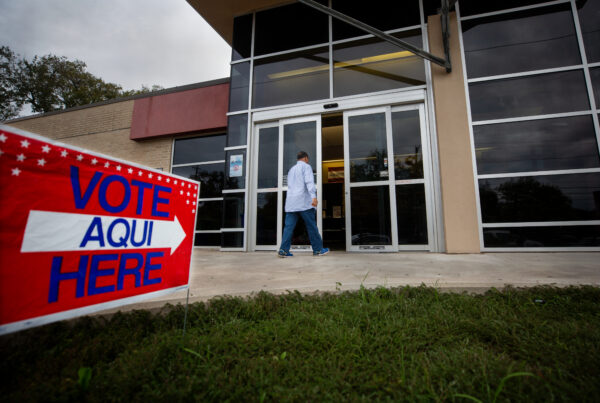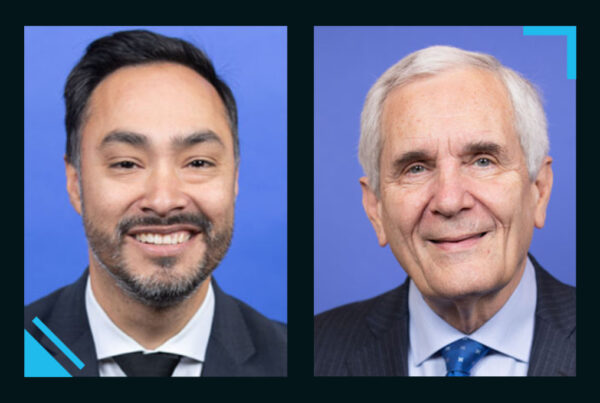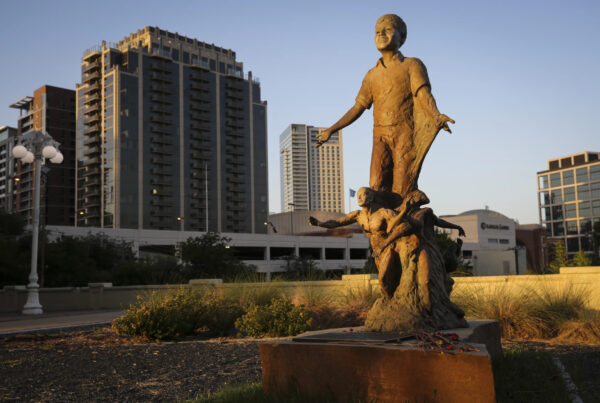Over the past few years, a lot of American workers have gotten raises, a welcome development for many after those initial coronavirus lockdowns.
At the same time, though, consumers have been dealing with record inflation that peaked around 9% last summer, something that has certainly cut into – and in some cases erased – those wage gains completely.
Since then, inflation has cooled down a bit, currently sitting at around 3% at last report. And according to recent reporting from the Wall Street Journal’s Amara Omeokwe, wage growth has finally caught up, surpassing inflation for the first time in two years.
She joined the Texas Standard to talk through the numbers. Listen to the interview above or read the transcript below.
This transcript has been edited lightly for clarity:
Texas Standard: Top line of this reporting is that wages are finally outpacing inflation for American workers. As a practical matter, what does that mean, and what sort of growth are we seeing? Are we feeling it?
Amara Omeokwe: Well, as a practical matter, what that means is that people’s paychecks are keeping up with inflation for the first time in a long time. So up until this summer, what we were seeing was that the pace of inflation was really erasing the wage gains that people were seeing. So although we did have robust wage growth, a lot of people weren’t feeling that because the price increases that they were seeing for their everyday goods and items that they need were just outweighing whatever pay increases they were seeing.
And so what you have seen in consumer sentiment data and consumer sentiment surveys is that people are feeling better about the state of the economy as inflation has come down and as those wage gains have started to be felt more. But they’re still not 100% sure about where the economy is going in the future, because we still have all this talk of recession.
You know, I’m thinking about the listener who is shaking his or her head vigorously and saying, “no, I’m sorry, I haven’t seen any wage growth. And if we’re already talking about people’s wages sort of catching up with inflation, what does that do for my prospects of ever getting a raise?” I mean, for those who kind of missed out on those wage gains, they’re sort of at a loss, it seems, if inflation is cooling, no?
Yeah, I mean, you’re absolutely right. So even though the data show that wage gains are outpacing inflation, we do have to remember that people have dealt with high prices for two years now, right? And so even though there is this positive economic development with wages, it might not necessarily feel that way for your average person, because at the grocery store, at the gas pump, when they’re paying their rent, prices have been so high for so long.
The thing that economists will say, though, is that inflation is expected to cool further as the Federal Reserve continues this campaign to bring inflation down and as what the Federal Reserve has already done continues to make its way through the economy. So if the Fed is successful in its goal, we should see inflation come down. Hopefully we will avoid a recession and people will be able to feel more of the wage gains and the easing and inflation that has been happening.
In your story, you point out that the theory here is that if wages continue to rise, “Americans’ leeway to propel the economy through increased spending” could obviously raise most, if not all, boats. But we have a lot of folks who are already flat-out, they’re trying to make ends meet and simply simply can’t do that.
If the new normal means cars that are priced really high, interest rates that are pricing people out of purchasing a home, for example – from what I understand, the Fed has not yet started rolling back those interest rates, and it’s not clear whether or how much they plan to do so. That seems to be a major factor here.
That’s a huge factor. And it still remains to be seen whether or not what the Fed has already done – and if they do further interest rate hikes – if that will tip the economy into a recession, which on top of the price increases that people have been digesting, on top of the higher interest rates, a flat-out recession would obviously be very painful for the American people.
What the Fed has said is that what it hopes to do is bring down inflation without tipping us into a recession. And economists have become more optimistic recently that perhaps the Fed will be successful in pulling that off, because what we have seen is that the labor market has been holding up pretty well.
The U.S. economy is still adding jobs; the overall unemployment rate is still pretty low by historical standards. And so economists have become a little bit more optimistic that maybe the Fed can pull off what it’s trying to do. But it does remain to be seen.
You mentioned that a lot of folks are concerned about whether or not this recovery is real or whether it will tip into a recession. You cover this stuff quite a lot. What’s your take on where the economy is headed?
In my reporting, what I’m hearing from economists is that when we look at what the economy has done, especially as the Federal Reserve has raised interest rates, the economy is holding up pretty well. And I think that has surprised economists and that has also surprised the Federal Reserve.
I think where we are is a really, really weird place and a really difficult place to kind of predict what’s going to happen next. Because we’ve been talking about wages and how wage gains have been improving and now outpacing inflation. But that is sort of a conundrum for the Fed, because if wage growth stays strong, then people may have the capacity to keep spending and powering the economy at a time when what the Fed is trying to do is cool the economy.
And so in a way, the wage growth picture is actually kind of a double-edged sword. People feel better because their wages are better keeping up with inflation, but it could mean that the Fed has more work to do to get inflation to where it would like it to be.
And that could mean even higher interest rates potentially.
Correct. Exactly.














